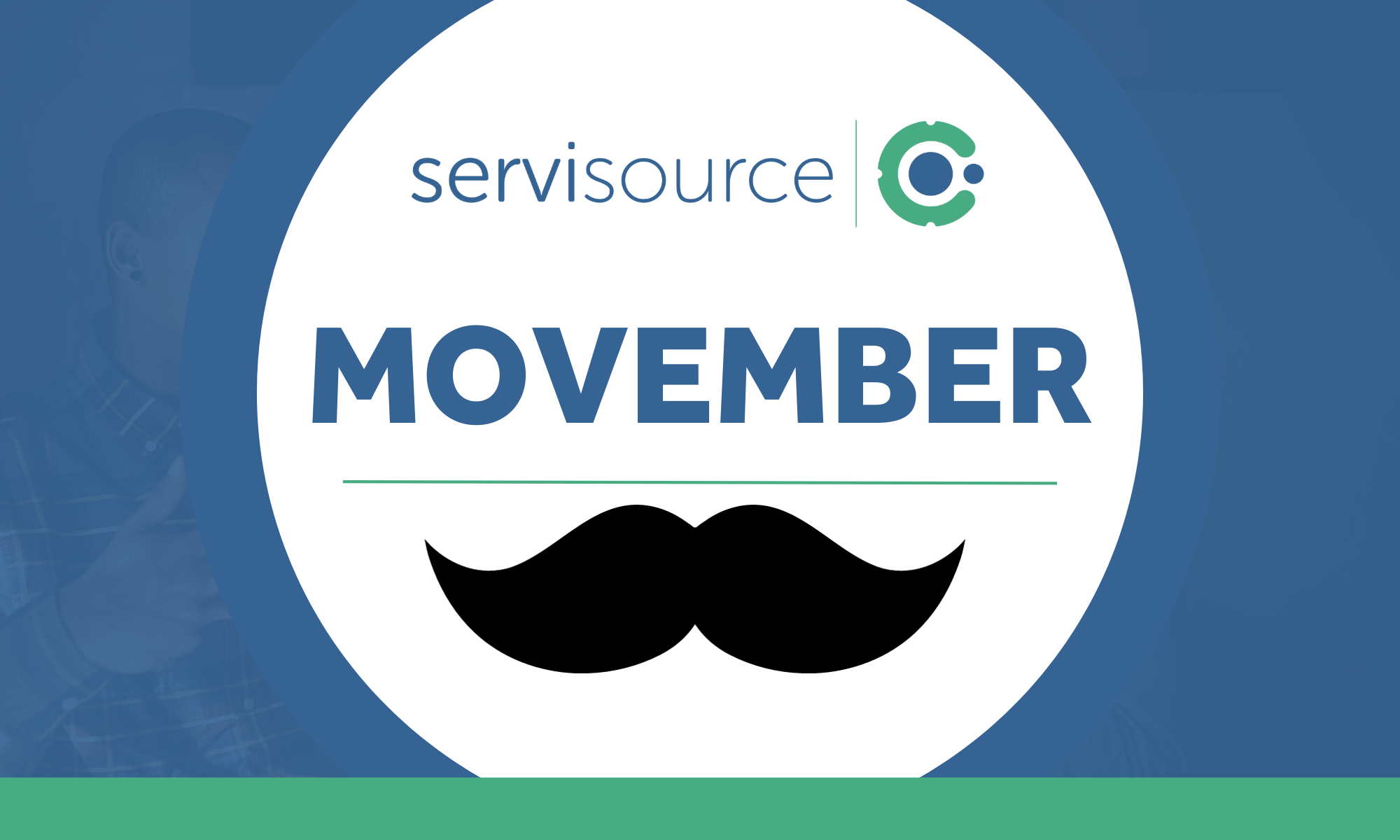Category: Career Guidance
How Can I Get a Job as a Nurse in the UK?
Becoming a nurse in the UK is a rewarding career choice that not only offers the chance to make a significant impact on patients’ lives but also provides a stable and fulfilling profession. The question how can I get a job as a nurse in the UK? Is a common question that many recruitment agencies hear. The process can be simplified by partnering with a reputable healthcare recruiter who specialise in placing nurses from around the world into UK healthcare roles, providing a wealth of support and resources.
At Servisource, we offer a full 360 recruitment experience. We manage all aspects of the entire recruitment process including interview scheduling, compliance checks, and even welcome international candidates to Ireland by meeting them at the airport. The onboarding of our candidates is what makes us unique, our candidates often comment on the little touches such as the sim card we give them at the airport so they can ring their families to let them know they arrived safely or the welcome pack we supply them with. Servisource spoke to our very own Recruitment Consultant Divya Ram to gain her expert advice on healthcare recruitment and employment in the UK.
Understanding the Nursing Profession in the UK
Nursing in the UK is regulated by the Nursing and Midwifery Council (NMC), which sets the standards for education, training, conduct, and performance. Their purpose is to make sure that the practices of nursing and midwifery are secure, effective, and compassionate. They oversee and monitor these professions and the public, to ensure their well-being.
Qualifications and Training
Equivalent Nursing Qualification: Nursing qualifications must be equivalent to those recognised in the UK. The Nursing and Midwifery Council (NMC) will assess credentials to ensure they meet UK standards. Typically, a nursing degree or diploma from a recognised institution is needed.
Clinical Experience: Practical experience is crucial. The NMC usually requires evidence of recent clinical practice to ensure that skills are current and relevant.

I found out about Servisource from a friend. Contacted the agent and in no time at all, they had added me to their database. The agent Marta, is very friendly and patient. Servisource facilitated the booking of interviews, and the issuing of visas and flights. They only do placements with the best care facilities. Thanks to Marta and team, I’m living my dream. I definitely recommend Servisource to nurses who are serious about relocating to the UK.

English Language Proficiency
Building CapacityBuilding Capacity
Proficiency in English is vital for ensuring effective communication in clinical settings. The NMC mandates that international nurses demonstrate their English language skills and there are three types of evidence that are accepted in order to demonstrate this to practice in the UK. The NMC accepts one of these three types, outlined below, without needing further evidence. Applicants must achieve the required score in each of the four areas of reading, writing, listening and speaking.
These three types of accepted evidence:

If you have completed an NMC-approved pre-registration nurse, midwife or nursing associate programme that was taught and examined in English. They will accept this as evidence that you have the necessary knowledge of English.

To demonstrate that you have practised in English, you must provide us with evidence that you have recently practised for one year as a nurse, midwife or nursing associate in a country where country where English is a majority spoken language.

There are two language tests as evidence of your ability to communicate effectively in English: the International English Language Test System (IELTS) Academic and the Occupational English Test (OET).
There have been changes to the NMC’s English language requirements which were approved by their Council last September. They ensure that the high standards of language skills needed by professionals will remain while keeping the process as fair as possible. Our blog Recent Changes to the NMC Registration Board with the ILETS/OET Exams goes into further detail surrounding these changes.
While the process of how to become a working nurse in the UK can seem daunting, partnering with a recruitment agency can transform this challenge into a smooth and rewarding experience. Agencies offer unparalleled support, from visa processes to securing job placements and facilitating the transition into the UK’s vibrant healthcare environment. By leveraging the expertise and resources of a recruitment agency, healthcare workers can focus on what truly matters, delivering compassionate care and making a significant impact on patients’ lives. The journey to becoming a valued member of the UK’s healthcare community starts here, with the guidance and support that only a dedicated recruitment agency can provide.
Guidance And Support For Prospective Overseas Candidates
NHS Employers is distributing an update from the Department for Health and Social Care. It states that the guidance for international applicants seeking health and social care jobs in the UK has been revised and reissued. This guidance and support for prospective overseas candidates offers assistance by providing advice on avoiding scams, recognising exploitation, and offering practical information necessary for seeking employment in the UK. It has been divided into two parts for easier access. All international candidates thinking about applying for a health or social care job in the UK should read this guidance and support first.
At Servisource, our recruitment team are aware that healthcare staff can be anxious when moving across the world to another country. However, our team ensure they feel like extended family members by putting them at ease, providing a meet and greet at the airport, supplying a sim card to call loved ones back home when they arrive, escorting them to their accommodation and in some instances taking them on their first shopping trip. This ensures they settle into their new home and surroundings well.
Part 1: Applying for health and social care jobs in the UK from abroad
Healthcare in the UK is mainly provided by the National Health Service (NHS), a group of public bodies that provide or arrange medical care for all permanent residents in the UK (England, Scotland, Wales, and Northern Ireland). There are many varied jobs in the health and social care sector. Some jobs need specific training and skills, and to practice, professionals must join professional registers. Part 1 provides support for prospective overseas candidates applying for jobs including information on:
Building CapacityBuilding Capacity
1. Finding a good recruitment agency
There are 2 main ways you can be recruited to the UK. You can apply for jobs directly via a jobs board such as NHS jobs or Find a job in social care. Or apply for jobs via a recruitment agency or recruitment organisation. If going through a recruitment agency, check if the agency has a strong track record and positive reviews from both candidates and employers.
Servisource has become one of Ireland’s leading national and international suppliers of high quality and innovative recruitment and healthcare staffing solutions, enabling continuity of care during peaks in demand, by providing cost-effective solutions which help our longstanding clients manage budgets, reduce workloads, maintain staffing levels and deliver premium patient care. Our team conduct all necessary compliance, educational and police checks, and offer visa assistance and onboarding help when needed.

Building CapacityBuilding Capacity
2. How to check if a job is untrustworthy
If you’re applying for a job with an independent provider (not publicly funded like the NHS), check that the company is real by looking it up on the Companies House website.

Building CapacityBuilding Capacity
Building CapacityBuilding Capacity
3. Understanding finances
Be clear what costs you’ll need to pay during the recruitment process and whether your employer will pay any of these for you. For most visas, including Health and Care Worker visas, you are not entitled to financial help from the UK government (this is also called ‘no access to public funds’). It is advised to check the following:

Building CapacityBuilding Capacity
Building CapacityBuilding Capacity
4. Employment offers and contracts
Make sure you get a job offer letter from your employer which details the salary, hours, location and any repayment clauses before accepting a job and travelling to the UK. Do not allow anyone to pressure you into signing a contract until you’re comfortable with what is included. Do not sign a different contract on arrival in the UK. Some employers have used this as a way of reducing your rights. All employers should provide:

Building CapacityBuilding Capacity
Building CapacityBuilding Capacity
5. Visas, family dependants, professional regulation and employer support
Information is available though the Health and Care Worker visa requirements guidance if applying for that visa. For care workers or senior care workers, dependants can’t join them in the UK unless they are on a Health and Care Worker visa applied for before 11 March 2024.

Part 2: living and working in the UK , what you need to know as a health and care worker
This part is a guide that provides advice on how to recognise the signs of exploitation, how to avoid it and what to do about it. The code of practice for the international recruitment of health and social care personnel sets out the UK government’s written guidelines for ensuring that international recruitment of health and social care staff is done ethically. Part 2 provides support on the following topics:
Building CapacityBuilding Capacity
1. Be aware of exploitation
Be aware of the signs of exploitation. These include being forced to work under poor conditions, without reasonable time off and for little or no payment. Money and fees issues are discussed as well as working hours and quality of care being provided.

Building CapacityBuilding Capacity
2. Arranging accommodation
Make sure you have a clear plan for where you will live, who is arranging it and for how long. For advice on looking for a home through a private landlord or letting agent, see Shelter.

Building CapacityBuilding Capacity
Building CapacityBuilding Capacity
3. Worker legal rights, working hours and taking on additional work
Your rights as a worker are protected by UK law. Read the GLAA workers’ rights leaflet. By law, you must not work more than 48 hours a week on average, unless you ‘opt out’. Even if you opt out, you must take rest breaks from work.

Building CapacityBuilding Capacity
Building CapacityBuilding Capacity
4. Employment changes and your visa
Your visa may be affected if you change jobs, lose your job, or your employer loses their sponsorship licence. Please note that your employer cannot deport you, the Home Office will decide whether to cancel your visa or not.

Building CapacityBuilding Capacity
Building CapacityBuilding Capacity
5. Equality and inclusion in the workplace
You’re legally protected from discrimination by the Equality Act 2010. If you think you’ve been unfairly discriminated against, you can contact the Equality Advisory Support Service for help and advice, or contact your trade union.

Building CapacityBuilding Capacity
Building CapacityBuilding Capacity
6. Organisations to support you during your employment
If you join after a problem has occurred it is harder for these organisations to represent you, so consider joining when you first start your job. You’ll need to pay a membership fee, but some trade unions offer a discounted membership fee for international members.

Servisource want to make sure the process of recruitment is understood, and that healthcare workers are well informed about working rights and standards and have the information needed to make decisions. For detailed information on the above, please refer to the gov.uk website.
New Immigration Rules Introduced by the UK Government
On 4 December 2023, new immigration rules were introduced by the UK government. These changes to the immigration system will take effect from Spring 2024.
The upcoming changes to the Health and Care Visa route will specifically impact the care sector in the UK. Under these changes, care workers and senior care workers will no longer be allowed to bring their dependents when moving to the UK, and only CQC-registered providers in England can sponsor Health and Care Visa applicants. It’s important to note that these changes do not apply to the NHS. There are no changes to the policy on dependants for NHS staff. They will be able to bring partners and childrens as dependants if eligible. A dependant partner or child is any of the following:
Evidence of the relationship to the dependant needs to be provided when applying for the visa. Workers and dependants account for some of the highest proportion of visas being issued.
The Health and Care Visa route will not be affected by changes to salary thresholds and will still exempt holders from the Immigration Health Surcharge (IHS). The government plans to review the Shortage Occupation List (SOL) and Graduate Visa route. While the government aims to reduce net migration, it acknowledges the importance of internationally educated health and care workers.
The measures announced are possible because the government is prioritising growing the domestic workforce through the Back to Work Plan – a package of employment-focused support that will help people stay healthy, get off benefits and move into work.

International Recruitment at Servisource
Our team recruits Nurses across all disciplines and Allied Healthcare Professionals from across the world. We manage all aspects of the recruitment process including interview scheduling, compliance checks, and even welcome international candidates by meeting them at the airport.
We operate regionally, nationally and globally, providing access to the right people with the right skills and knowledge in the right place.
As the government makes changes to immigration policies, the Health and Care Visa remains a distinct and important route for healthcare professionals. While some aspects are evolving, such as the review of occupation lists and graduate visas, it’s reassuring that key benefits like exemption from the Immigration Health Surcharge persist.
These changes may raise many questions, especially for internationally educated staff and those involved in recruitment. By regularly checking Servisource’s latest blogs, professionals can receive the most up-to-date information and guidance in this evolving landscape.














